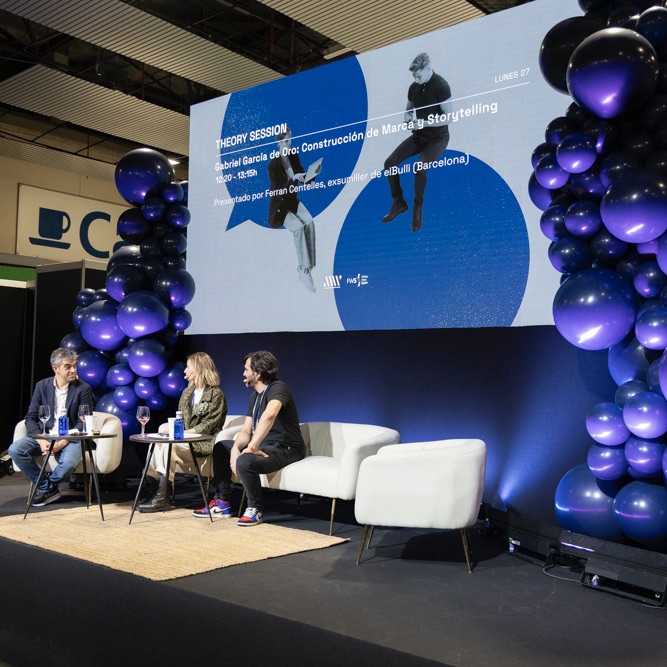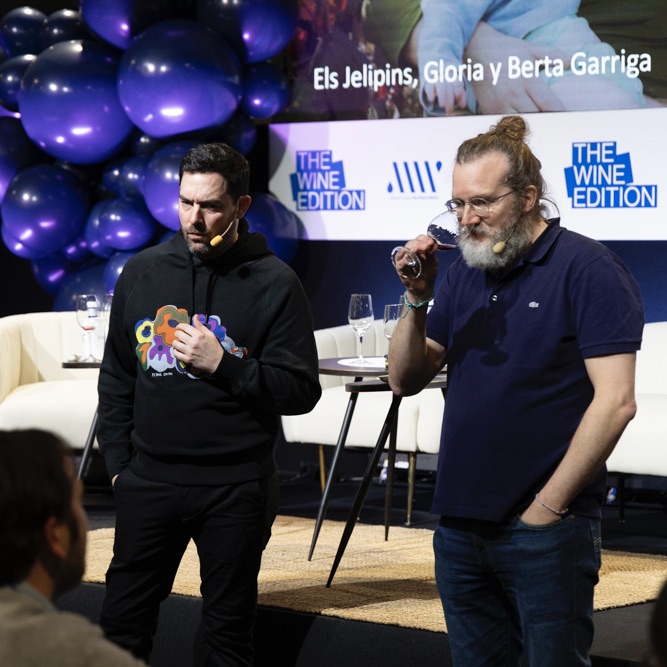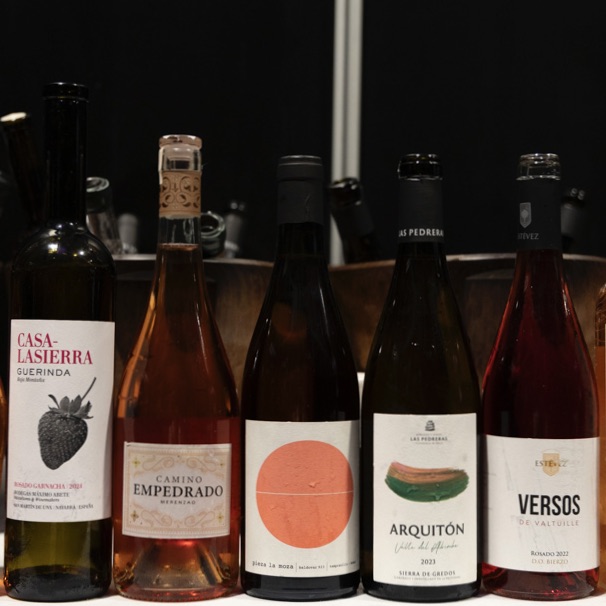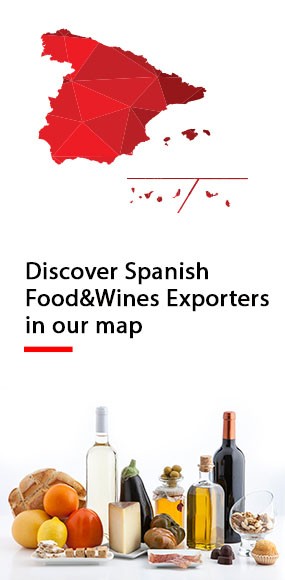.png.transform/rendition-xs/image_image%20(1).png)
The New Face of Spanish Wine
The congress The Wine Edition Wines from Spain raises a toast to the emerging styles and leading figures set to define the future of Spanish wine in the years to come
"The wine is full of stories," explained Ferran Centelles, the former sommelier of elBulli, during his presentation on the first day of The Wine Edition Wines from Spain congress, part of the liquid programming at Madrid Fusión Alimentos de España. If that’s true, the stories shared over the three days of the congress bring good news for the Spanish wine sector, which presented an innovative and seductive image. This included styles from lesser-known regions, natural wines riding the wave of current trends, and new names poised to become the next generation of greats in the years to come.
The space, driven by Foods & Wines from Spain, comprises a high value-added program that allows professionals attending the conference to firsthand experience the excitement of the Spanish wine offering—diverse and with its own identity—while also strengthening the brand image of these wines. The program attracted the interest of expert visitors, who praised sessions as engaging as those dedicated to volcanic wines, age-worthy whites, and the young producers who are making the biggest impact.

Volcanic Terroirs and Natural Wines
The congress opened with an inspiring masterclass that transported attendees to the volcanic regions of the Canary Islands, highlighting the unique character of wines born from lands shaped by fire.
Jonatan García Lima (Suertes del Marqués winery, Valle de la Orotava DO, Tenerife) turned the focus to the diversity of volcanic soils in the Canary Islands, shaped by the varying ages and geologies of the archipelago. He emphasized how factors like soil acidity, vineyard orientation, and rainfall patterns influence the character of Canary Island wines. Facing challenges such as drought and heat waves, García Lima stressed the need for adaptation, including higher-altitude vineyards and traditional systems like the braided cordon trellising of La Orotava, which protects vines from extreme weather and pests like phylloxera. For García Lima, volcanic wines are best summarized as embodying “salinity and freshness.”
On the afternoon, natural wines jumped in with a dialogue between chef Rafa Peña (from Gresca restaurant in Barcelona) and Spanish sommelier Alberto Segade (from two Michelin stars Kadeau restaurant in Copenhagen). They showcased natural wines with strong personalities, crafted primarily by women from regions such as Balearic Islands and Catalonia. These wines, defined by freshness and elegance, paired seamlessly with a variety of dishes. Segade challenged the “natural wine” label, stating, “There are good and bad wines, but natural wines often come with beautiful stories of sustainability and respect for the environment.”

Rosé Renaissance and Rising Stars
On Tuesday morning, Beth Willard, Co-Chair of the Decanter World Wine Awards, led a masterclass on Spanish rosés, showcasing their gastronomic potential. Highlighting a wave of high-quality rosés, Willard remarked, “Spain is experiencing progress in rosé quality that I haven’t seen elsewhere in the world.” Attendees sampled a diverse selection, including a Garnacha from Navarre fermented in amphora or a Clarete from Madrid fermented in tinaja. Each wine demonstrated the versatility and excellence of modern Spanish rosés, reflecting the category’s growing global appreciation.
In the afternoon, Ismael Álvarez, sommelier of Michelin-starred Chispa restaurant in Madrid, hosted a tasting spotlighting young, innovative winemakers shaping the future of Spanish viticulture. Among the featured talents were Sergi Canals (Cisteller, Corpinnat, Catalonia), Vicky Fernández (José Gil, Rioja DOca), César Márquez (Bierzo DO), Bárbara Requejo and Guzmán Sánchez (Las Pedreras, Cebreros DO), Carlos Cerrón (Jumilla DO), and Carmelo Peña (Bien de Altura, Gran Canaria, Canary Islands). These winemakers are revitalizing their regions by championing indigenous varieties, sustainable practices, and traditional techniques.
César Márquez emphasized the importance of artisanal vinification and respecting Bierzo’s diverse terroirs. Vicky Fernández highlighted the complexity of Rioja’s soils, while Bárbara Requejo discussed efforts to preserve Gredos’ vineyards amidst rural depopulation. Carlos Cerrón, from Jumilla, advocated for exploring the region’s untapped potential, while Carmelo Peña championed the unique characteristics of Canary Island wines. Ismael Álvarez summed up the session with an inspiring remark: “Youth is not about age; it’s a state of mind.”

The Grandeur of Age-Worthy White Wines
The final day featured a seminar on age-worthy white wines, led by Master of Wine Sarah Jane Evans. Joined by esteemed producers Rafael Palacios (Valdeorras DO), Pedro Ruiz (Ossian, Rueda DO), and María Vargas (Marqués de Murrieta, Rioja DOCa), the session explored what makes a great white wine for aging. Discussions centered on the interplay between variety, terroir, winemaking techniques, and barrel aging. Evans emphasized that age-worthy whites represent not just the past but also the future of winemaking.
From the volcanic soils of the Canary Islands to a new generation of winemakers, The Wine Edition Wines from Spain 2025 showcased the vibrancy and diversity of Spanish wine industry. With themes of sustainability, innovation, and emotional connection, this year’s congress left attendees inspired and excited for the future of wine. A toast to that!

